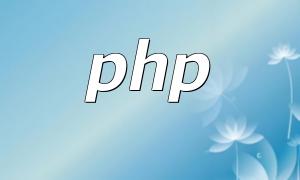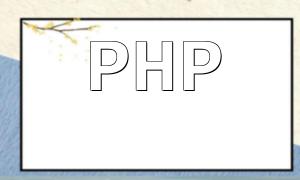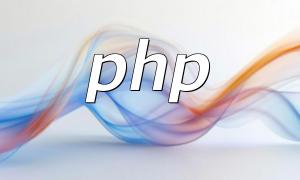In PHP application development, performance is closely linked to code quality. Choosing the right framework and following best practices can significantly improve application speed and responsiveness.
Selecting the appropriate framework is crucial for performance optimization. Laravel is suitable for complex projects with rich features and scalability, while CodeIgniter is lightweight and efficient for small to medium-sized applications.
Caching is an important way to improve performance. By caching database queries or page content, you can reduce repeated computation and database access, thereby increasing response speed.
Practical Example:
// Using Laravel cache
Cache::put('user_name', $user->name, 60); // Cache data for 60 seconds
// Retrieve data from cache
$userName = Cache::get('user_name');Optimizing code structure and logic can also significantly enhance performance. Here are some best practices:
Practical Example:
// Avoid redundant code
if (isset($user)) {
return $user->name;
} else {
return null;
}
// Simplify using ternary operator
return isset($user) ? $user->name : null;In addition to framework selection, caching, and code optimization, the following methods can further improve performance:
By applying these optimization strategies comprehensively, PHP applications can achieve significantly better performance, enhance user experience, and reduce server load.









